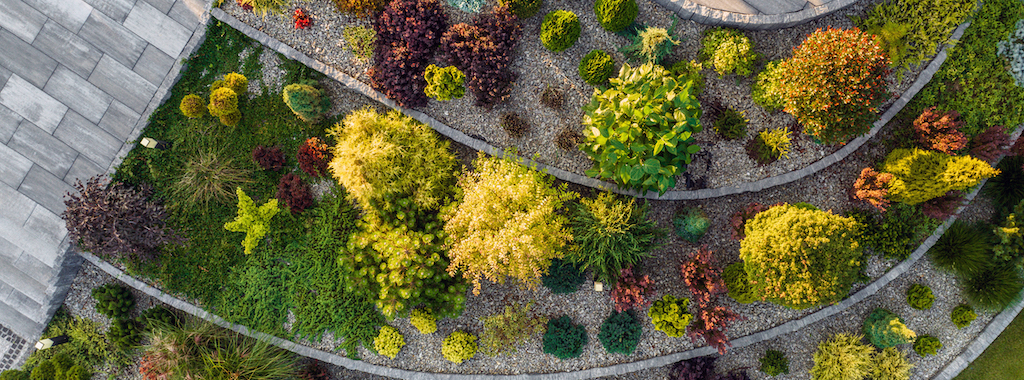
When managing rental properties, it’s important to draw the line between landlord and tenant duties. Landlords are responsible for the structure and function of the property, while tenants are responsible for day-to-day care. Tenants deal with changing light bulbs and air filters, clogged drains, routine cleaning, and so on. Landlords are responsible for repairs and exterior maintenance. But what about lawn care?
This is where each rental property and landlord handles the situation a little differently. Let’s explore how to handle lawn care responsibility for your rental properties.
Is the Landlord or Tenant Responsible for Lawn Upkeep?
Whether landscaping is the job of the tenant or landlord depends on the property, the lease, and relative ability.
Private Yard vs Landscaping
If the tenant has a private yard, they can be made responsible for lawn care and gardening. However, if the lawn around their home is shared green space, the landlord is typically responsible for property landscaping.
Terms of the Lease
A tenant is only responsible for what is defined in their lease. Without both transparent terms and written lease terms, it will be assumed that the landlord will provide landscaping services as needed.
Ability and Reasonable Requirements
Some tenants are not able to operate a lawn mower or weed a garden. Some do not have a green thumb, don’t have time, or don’t have a landscaping budget to care for the lawn as it was designed. Landlords must consider reasonable lawn care requirements.
How Can Landlords Ensure the Grounds are Cared For?
As a responsible landlord, naturally you want to ensure that the grounds of each property are cared for. How can you safely place this responsibility in tenant hands or make sure it is always taken care of professionally?
A Well-Written Lease
A well-written lease with transparent terms can clearly define lawn care as a tenant responsibility. You will want to define exactly what the tenant is responsible for and set reasonable terms, like routine mowing. It can help to include options like splitting the cost of a landscaping service if the tenant cannot personally care for the lawn.
Hiring Landscaping Services
Many landlords simply hire a landscaping service for shared and private grounds and let tenants know when the crews will routinely arrive. This neatly ensures your grounds are always well-kept and takes the burden off tenants who will be differently inclined or able to tend to lawn care.
Supplying Tenants with Tools
You may be able to provide tenants with basic tools like a lawnmower and hedge clippers to tend the lawn. However, these assets become your responsibility to maintain and ensure safe operation.
How to Balance Landscaping for Attractiveness and Easy Upkeep
One of the best ways to make sure your properties look great, no matter who takes responsibility or how skilled your tenants are at lawn care is to landscape effectively. Making landscaping choices that balance attractiveness and easy upkeep can help you and your tenants keep properties looking good with minimal effort.
Simple Landscaping Designs
Avoid elaborate garden designs. Most people – yourself included – may not have the time, skill, or patience to maintain a lush garden. Instead, keep it simple. A lawn, a few flower beds, and perhaps decorative areas that don’t require care will maintain the property’s appearance without too much work.
Durable Turf Choices & Annual Lawn Treatments
Choose grass (turf) types that are durable in the climate of each rental home. Look for options that are weed-resistant and drought-resistant whenever possible. This will keep lawns looking nice without constant watering and chemistry.
Xeriscaping and Ground Cover
Minimize greenery that needs care. Xeriscape by choosing local and drought-resistant plants and cover flower beds with wood chips or pebbles so they look nice without needing to be full of delicate blooming plants. A few sturdy bushes can also make a big difference with minimal care.
Landscaping Responsibility for Your Rental Properties
Some rental properties are easier to determine landscaping responsibility than others. If all green space is shared, the responsibility lies with the landlord. If there is a private yard, you can decide whether to provide landscaping or require tenants to take on the responsibility.
However, it’s a good idea to choose low-maintenance designs and remain flexible, just in case your next tenant cannot landscape (even if the responsibility is traditionally theirs). Be open to negotiation, whether that means splitting the cost of a professional crew or even permitting changes for a tenant who actively wants to garden and grow.



